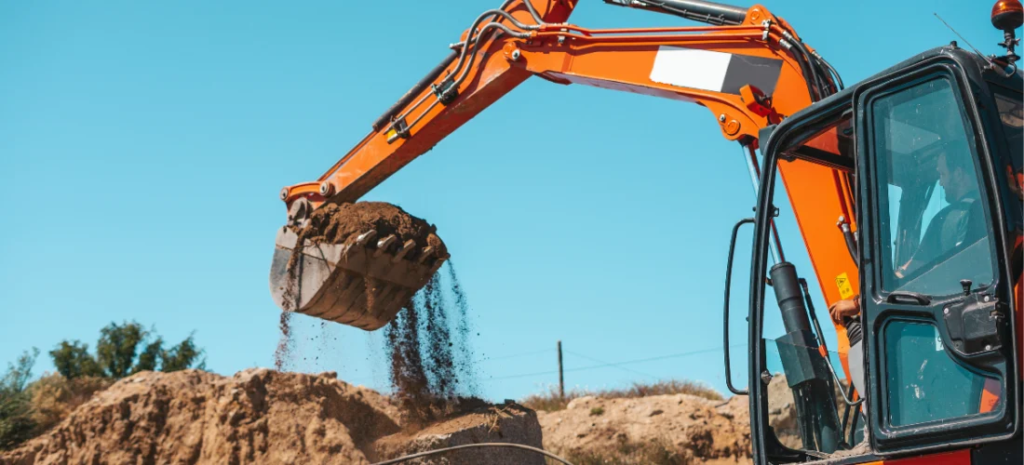Construction Machinery Rentals: A Guide to Choosing the Right Equipment

Construction projects vary greatly in scope, requiring a range of specialized machinery to get the job done efficiently. While purchasing equipment is an option for some companies, many contractors opt for construction machinery rentals due to the flexibility, cost savings, and access to the latest technology. However, with so many options available, selecting the right machinery for a project can be overwhelming. Here’s a comprehensive guide to choosing the right equipment for construction rentals, ensuring that you select the best machinery to meet your project’s needs.
1. Assess Your Project Requirements
The first step in selecting the right machinery is understanding your project’s specific requirements. Not all equipment is suited for every task, so it’s essential to consider the unique demands of your job site. Start by evaluating the following factors:
- Project Size: Is your project a small-scale landscaping job, or are you working on a large commercial construction site? The scale will help determine the type and size of equipment you need.
- Type of Work: Are you primarily digging, lifting, or transporting materials? Different tasks require specialized machinery.
- Space Constraints: If your project site has limited space, you may need compact or zero-tail-swing equipment to avoid causing damage to nearby structures.
By carefully assessing your project’s needs, you’ll be better equipped to choose the right construction machinery rentals that match your objectives and site limitations.
2. Choose the Right Type of Equipment
Once you’ve evaluated your project requirements, it’s time to identify which types of equipment are best suited for the job. Here’s a breakdown of some commonly rented machinery and their ideal applications:
Excavators
Excavators are versatile machines used for digging, trenching, and material handling. They come in various sizes, from mini excavators for tight spaces to larger models for heavy-duty work. If your project involves significant excavation work, such as foundation digging or demolition, an excavator is essential.
Loaders
Loaders are ideal for moving large volumes of material, such as soil, gravel, and debris. Options include skid steer loaders, which are compact and highly maneuverable, and wheel loaders, which are larger and suitable for heavy lifting. Loaders are commonly used on construction sites for transporting materials quickly.
Backhoes
Backhoes combine the functions of an excavator and a loader, making them a versatile choice for many construction projects. With a digging bucket on one end and a loader on the other, backhoes are perfect for jobs that require both digging and moving materials. They’re especially useful for smaller sites where multiple machines might be impractical.
Dozers
Bulldozers, or dozers, are powerful machines designed for pushing large amounts of earth and grading. They are typically used for site preparation, road building, and leveling work. For projects that require extensive land clearing or grading, a bulldozer rental can save time and labor.
Aerial Lifts
Aerial lifts, including boom lifts and scissor lifts, provide access to elevated work areas. These are essential for projects that involve tasks at height, such as installing signage or building structures. Choose an aerial lift based on the height requirements of your project and the terrain it will be used on.
By identifying the primary tasks on your job site, you can select the best construction machinery rentals for your needs and avoid unnecessary equipment that could add to rental costs.
3. Consider Equipment Size and Specifications
Once you’ve determined the type of machinery needed, the next step is to choose the appropriate size and specifications. Equipment size plays a significant role in both performance and maneuverability, so it’s essential to select the right machine for the job.
Choosing the Right Size
- Compact Equipment: Compact equipment, such as mini excavators or compact loaders, is ideal for small spaces and urban environments where space is limited.
- Standard and Large Equipment: For larger projects, standard and large equipment can handle heavier workloads and larger material volumes, reducing project timelines and improving efficiency.
Key Specifications to Review
Each machine has specific features that may impact performance on your project. Pay attention to specifications like operating weight, horsepower, and reach capabilities. By matching these specs to the demands of your job site, you ensure that your rented machinery will operate efficiently and meet your project’s requirements.
4. Prioritize Quality and Maintenance
The condition of rental equipment has a direct impact on productivity and safety. When selecting construction machinery rentals, it’s crucial to work with a rental company that prioritizes regular maintenance and offers high-quality, well-maintained machinery.
Inspect Equipment Condition
Before finalizing your rental agreement, inspect the equipment to ensure it’s in good working condition. Look for signs of wear, check that safety features are functioning correctly, and ask the rental company about the last maintenance date. Reputable rental providers will be transparent about their maintenance schedules and have no problem providing this information.
Request Maintenance Records
A reliable rental company should provide maintenance records and inspection documentation for each piece of equipment. By reviewing these records, you can be confident that the machinery has been regularly serviced and is ready for use. Properly maintained equipment reduces the risk of breakdowns and keeps your project running smoothly.
5. Compare Rental Costs and Terms
Rental costs can vary significantly based on the type of equipment, rental duration, and the rental company’s policies. To ensure you’re getting the best value, compare costs and terms from different providers. Key factors to consider include:
- Rental Fees: Understand the base rental rate and any additional fees that may apply, such as delivery, fuel, or insurance.
- Rental Duration: Many rental companies offer daily, weekly, and monthly rates. For long-term projects, ask about discounted rates for extended rentals.
- Damage and Liability: Review the rental company’s policy on damages and liability. Know who is responsible for repairs in the event of equipment damage, and ask if insurance is included in the rental agreement.
Transparent pricing and clear rental terms make it easier to budget accurately for your project and ensure that there are no surprises when the rental period ends.
6. Look for Safety Features and Compliance
Safety is paramount on any construction site, and the equipment you rent should meet industry safety standards. Before finalizing your rental, ensure that the equipment includes essential safety features, such as backup alarms, rollover protection systems (ROPS), and visibility aids. Reputable rental companies will comply with OSHA and other regulatory standards to ensure that all equipment is safe to operate.
Operator Training Options
Some rental companies offer operator training for specific machinery, which can be beneficial if your team is unfamiliar with certain equipment. Proper training reduces the risk of accidents and ensures that your team can operate the machinery safely and effectively. When exploring construction machinery rentals, ask if training or operator manuals are available, particularly for more complex equipment.
7. Evaluate Customer Support and Service
The level of customer support provided by a rental company can significantly impact your experience. Reliable customer support ensures that any questions or issues are addressed promptly, minimizing potential downtime and helping your project stay on track.
Availability of On-Site Assistance
Some companies offer on-site technical support or rapid response services if equipment malfunctions. This is particularly valuable for time-sensitive projects, as quick repairs or replacements can prevent delays. A strong support network from your rental provider is essential for maintaining productivity and avoiding costly interruptions.
8. Think About Transport and Delivery Logistics
Transporting heavy machinery to and from your job site can be costly and logistically challenging. When selecting a rental provider, discuss their delivery and pickup options to ensure they align with your project’s schedule.
Delivery Costs and Timing
While some rental companies include delivery and pickup fees in their base rate, others may charge based on distance or equipment type. Clarify these costs in advance and ensure that the rental company can deliver the machinery on time. Working with a company known for punctual deliveries will help keep your project on schedule.
Final Thoughts
Choosing the right construction machinery rentals is essential to completing your project efficiently and safely. By assessing your project requirements, selecting the appropriate equipment, and prioritizing quality and maintenance, you can ensure a smooth rental experience that meets your project’s needs. Additionally, transparent rental terms, strong customer support, and reliable delivery services will contribute to a successful partnership with your rental provider.
Whether you’re working on a short-term job or an extensive construction project, taking the time to choose the best rental equipment will make a significant difference in productivity and cost-effectiveness. By partnering with a reputable rental company and focusing on equipment quality, safety, and support, you can confidently tackle your project with the right machinery for every phase.





